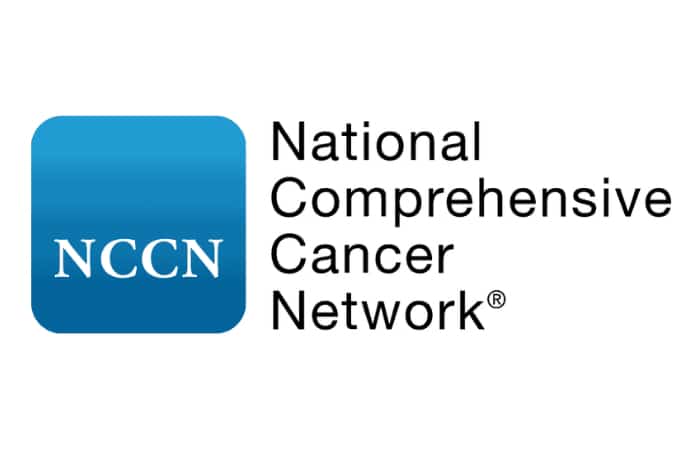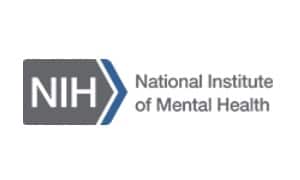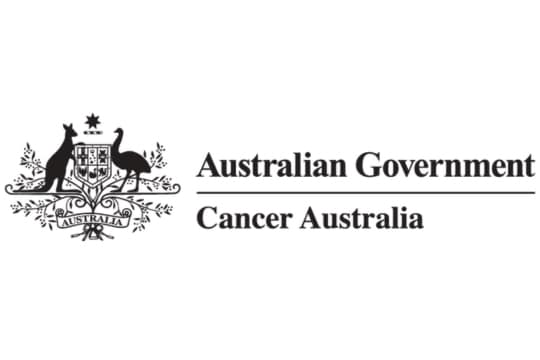Depression at a glance
Depression—a mood disorder that causes a persistent feeling of sadness and loss of interest—is common among people with cancer. Symptoms include, but are not limited to, sadness, loss of motivation or interest in activities, and trouble focusing or making decisions.
The relationship between depression and terrain factors with known links to cancer, such as inflammation, pain, and hormone imbalances, is intricate and often goes both ways: depression can contribute to physical health issues, and physical health issues can, in turn, exacerbate or trigger depression. If you are depressed, getting treatment and breaking this feedback loop may be an important part of your cancer care.
Depression is treatable. Seek professional help if you need it: diagnoses such as depression can require therapy or medication from trained practitioners. Complementary approaches can also help you manage depression. Mind-body therapies, certain supplements and natural products, and therapies that manipulate your body or bioenergy fields have been helpful for some people. Depression may also be a symptom of stress. If stress is contributing to your depression, reducing your stress will be crucial to managing your depression.
Taking care of your mental health is as important as taking care of your physical health.
Depression: an overview
What is depression?
Depression is a mood disorder that causes a persistent feeling of sadness and loss of interest.1Depression (major depressive disorder). Mayo Clinic. Viewed July 17, 2024. It can affect anyone, including people with cancer: about one in four people with cancer may experience severe depression.2Depression PDQ: Health Professional Version. National Cancer Institute. July 9, 2024. Viewed July 17, 2024. Some people may already have been depressed before learning they have cancer, and having cancer may affect their depression. Most importantly, depression is treatable.
Severe depression, called major depressive disorder or major depression, affects relationships and day-to-day life, making it difficult to function. While sadness and anxiety are normal reactions to getting a cancer diagnosis, these reactions tend to fluctuate over time. They may ease as you come to terms with the situation3Stanton AL, Snider PR. Coping with a breast cancer diagnosis: a prospective study. Health Psychology. 1993 Jan;12(1):16-23 and should not severely interfere with your ability to carry out daily activities or make decisions.4Depression PDQ: Health Professional Version. National Cancer Institute. July 9, 2024. Viewed July 17, 2024.
Depression may make it harder to cope with and finish your cancer treatment.5Lin C, Clark R, Tu P, Bosworth HB, Zullig LL. Breast cancer oral anti-cancer medication adherence: a systematic review of psychosocial motivators and barriers. Breast Cancer Research and Treatment. 2017 Sep;165(2):247-260. It may affect your body’s defenses against cancer, or interfere with your ability to make choices about your care.
Most importantly, depression is treatable, and addressing it is a key part of managing your health.6Depression PDQ: Health Professional Version. National Cancer Institute. July 9, 2024. Viewed July 17, 2024.
Depression and cancer
Depression affects not only mental health but also physical health: it has been associated with higher risks of cancer,7Wang YH, Li JQ et al. Depression and anxiety in relation to cancer incidence and mortality: a systematic review and meta-analysis of cohort studies. Molecular Psychiatry. 2020 Jul;25(7):1487-1499. recurrence,8Wang X, Wang N et al. Prognostic value of depression and anxiety on breast cancer recurrence and mortality: a systematic review and meta-analysis of 282,203 patients. Molecular Psychiatry. 2020 Dec;25(12):3186-3197. and cancer-related death.9Prasad SM, Eggener SE et al. Effect of depression on diagnosis, treatment, and mortality of men with clinically localized prostate cancer. Journal of Clinical Oncology. 2014 Aug 10;32(23):2471-8; Faller H, Bülzebruck H, Drings P, Lang H. Coping, distress, and survival among patients with lung cancer. Archives of General Psychiatry. 1999 Aug;56(8):756-62; Wang YH, Li JQ et al. Depression and anxiety in relation to cancer incidence and mortality: a systematic review and meta-analysis of cohort studies. Molecular Psychiatry. 2020 Jul;25(7):1487-1499; Wang X, Wang N et al. Prognostic value of depression and anxiety on breast cancer recurrence and mortality: a systematic review and meta-analysis of 282,203 patients. Molecular Psychiatry. 2020 Dec;25(12):3186-3197; Liang X, Margolis KL et al. Effect of depression before breast cancer diagnosis on mortality among postmenopausal women. Cancer. 2017 Aug 15;123(16):3107-3115. Depression is also linked to body terrainthe internal conditions of your body, including nutritional status, fitness, blood sugar balance, hormone balance, inflammation and more factors important in cancer, including body weight,10Wing RR, Matthews KA, Kuller LH, Meilahn EN, Plantinga P. Waist to hip ratio in middle-aged women. Associations with behavioral and psychosocial factors and with changes in cardiovascular risk factors. Arteriosclerosis and Thrombosis. 1991 Sep-Oct;11(5):1250-7. hormone imbalances,11Tu KY, Wu MK et al. Significantly higher peripheral insulin-like growth factor-1 levels in patients with major depressive disorder or bipolar disorder than in healthy controls: a meta-analysis and review under guideline of PRISMA. Medicine (Baltimore). 2016 Jan;95(4):e2411; Strittmatter M, Bianchi O et al. Funktionsstörung der hypothalamisch-hyphophysär-adrenalen Achse bei Patienten mit akuten, chronischen und intervallartigen Schmerzsyndromen [Altered function of the hypothalamic-pituitary-adrenal axis in patients with acute, chronic and episodic pain] German. Schmerz. 2005 Apr;19(2):109-16. immune function,12Schutte NS, Malouff JM. The association between depression and leukocyte telomere length: a meta-analysis. Depression and Anxiety. 2015 Apr;32(4):229-38; Levy SR, Herberman ML et al. Correlation of stress factors with sustained depression of natural killer cell activity and predicted prognosis in patients with breast cancer. Journal of Clinical Oncology. 1987 Mar;5(3):348-53. inflammation,13Wittenberg GM, Stylianou A et al; MRC ImmunoPsychiatry Consortium. Effects of immunomodulatory drugs on depressive symptoms: a mega-analysis of randomized, placebo-controlled clinical trials in inflammatory disorders. Molecular Psychiatry. 2020 Jun;25(6):1275-1285; Abbott R, Whear R et al. Tumour necrosis factor-α inhibitor therapy in chronic physical illness: A systematic review and meta-analysis of the effect on depression and anxiety. Journal of Psychosomatic Research. 2015 Sep;79(3):175-84; Hiles SA, Baker AL, de Malmanche T, Attia J. Interleukin-6, C-reactive protein and interleukin-10 after antidepressant treatment in people with depression: a meta-analysis. Psychological Medicine. 2012 Oct;42(10):2015-26. and your microbiomethe collection of microbes living on and within your body.14Naseribafrouei A, Hestad K et al. Correlation between the human fecal microbiota and depression. Neurogastroenterology and Motility. 2014 Aug;26(8):1155-62. These links are complex, and cause and effect can go both ways. Depression may lead to worse health; conversely, inflammation, poor health, and facing a serious diagnosis may contribute to depression. Since there is scientific evidence of these links, managing your depression is one step you can take to improve your cancer outcomes.
What can cause depression?
According to the National Cancer Institute, “Sadness and grief are normal reactions to the crises faced during cancer. All people will experience these reactions periodically. A cancer diagnosis, ongoing treatment, and adverse effects of treatment, such as sexual difficulties, can all increase risk of depression.”15Hein I. Sexual distress, depression after prostate cancer treatment. Medscape. May 20, 2020. Viewed June 23, 2023; Tsao PA, Ross RD, Bohnert ASB, Mukherjee B, Caram MEV. Depression, anxiety, and patterns of mental health care among men with prostate cancer receiving androgen deprivation therapy. Oncologist. 2022 Apr 5;27(4):314-322; Dinh KT, Reznor G et al. Association of androgen deprivation therapy with depression in localized prostate cancer. Journal of Clinical Oncology. 2016 Jun 1;34(16):1905-12; Polacek LC, Nelson CJ. Androgen deprivation therapy and depression in men with prostate cancer treated with definitive radiation therapy: a psychological perspective. Cancer. 2019 Apr 1;125(7):1027-1029. Fear of cancer recurrence is also linked to depression.16Pizzo A, Leisenring WM et al. Fear of cancer recurrence in adult survivors of childhood cancer. JAMA Network Open. 2024 Oct 1;7(10):e2436144.
Certain medications—such as steroids, interleukin-2 (IL-2), some chemotherapy drugs, and many more—may contribute to depression.17Depression PDQ: Health Professional Version. National Cancer Institute. July 9, 2024. Viewed July 17, 2024.
Medical conditions
Several medical conditions are linked to higher risk of depression.
Anxiety
Depression can be triggered by an anxiety disorder; many people have a diagnosis of both anxiety and depression.18Sawchuk CN. Depression and anxiety: Can I have both? Mayo Clinic. June 2, 2017. Viewed July 17, 2024. Fixating on worst-case outcomes (catastrophizing) is also linked to higher risk of depression.19Fischer DJ, Villines D, Kim YO, Epstein JB, Wilkie DJ. Anxiety, depression, and pain: differences by primary cancer. Supportive Care in Cancer. 2010 Jul;18(7):801-10.
Pain
Pain is linked to higher risk of depression.20Tarrasch J, England P, Hurst VT, McDonald D, O’Keefe R, Cipriano C. Patients with metastatic disease are at highest risk for anxiety and depression in an orthopedic oncology patient population. JCO Oncology Practice. 2022 Jun 1:OP2100905. Pain may worsen depression, and depression may worsen pain.21Charalambous A, Giannakopoulou M, Bozas E, Paikousis L. Parallel and serial mediation analysis between pain, anxiety, depression, fatigue and nausea, vomiting and retching within a randomised controlled trial in patients with breast and prostate cancer. BMJ Open. 2019 Jan 24;9(1):e026809; Joyce C, Roseen EJ et al. Can yoga or physical therapy for chronic low back pain improve depression and anxiety among adults from a racially diverse, low-income community? A secondary analysis of a randomized controlled trial. Archives of Physical Medicine and Rehabilitation. 2021 Jun;102(6):1049-1058; Ciaramella A, Poli P. Assessment of depression among cancer patients: the role of pain, cancer type and treatment. Psycho-oncology. 2001 Mar-Apr;10(2):156-65. Alleviating either depression or pain to interrupt the feedback loop between the two conditions may provide relief from both symptoms. See Pain ›
Diabetes and high blood sugar
Diabetes,22Bădescu SV, Tătaru C et al. The association between diabetes mellitus and depression. Journal of Medicine and Life. 2016 Apr-Jun;9(2):120-5. high blood sugar,23Winokur A, Maislin G, Phillips JL, Amsterdam JD. Insulin resistance after oral glucose tolerance testing in patients with major depression. American Journal of Psychiatry 1988; 145:325-30. and insulin resistance24Nathan RS, Sachar EJ, Asnis GM, Halbreich U, Halpern FS. Relative insulin insensitivity and cortisol secretion in depressed patients. Psychiatry Research. 1981;4:291-300; Weber B, Schweiger U, Deuschle M, Heuser I. Major depression and impaired glucose tolerance. Experimental and Clinical Endocrinology & Diabetes. 2000;108(3):187-90; Okamura F, Tashiro A et al. Insulin resistance in patients with depression and its changes during the clinical course of depression: minimal model analysis. Metabolism. 2000 Oct;49(10):1255-60. are also linked to depression. See High Blood Sugar and Insulin Resistance ›
Poor functional status
Your inability to take care of yourself and be mobile and independent at home or in your community is linked to higher risk of depression.25Chen ML, Chang HK, Yeh CH. Anxiety and depression in Taiwanese cancer patients with and without pain. Journal of Advanced Nursing. 2000 Oct;32(4):944-51.
What are the signs or symptoms of depression?
Suicidal thoughts
Suicidal thoughts require urgent attention.
If you experience suicidal thoughts, it’s crucial to seek help immediately by contacting a physician or mental health provider.
In the US, the National Suicide Prevention Lifeline is open 24 hours a day, seven days a week, at 800-273-8255. The International Association for Suicide Prevention provides information on crisis centers and helplines around the world.
If someone you know is having suicidal thoughts, you can help.

If Someone Tells You They’re Thinking about Suicide: A #RealConvo Guide from AFSP ›
An excellent guide for what you can do if a loved one indicates they are having suicidal thoughts
The steps AFSP advises you to take if your loved one is in immediate danger:
- Stay with them
- Help them remove lethal means
- Call the National Suicide Prevention Lifeline: 1-800-273-8255
- Text TALK to 741741 to text with a trained crisis counselor from the Crisis Text Line free of cost, 24/7
- Encourage them to seek help or to contact their doctor or therapist
Other signs and symptoms
Depression can manifest through a variety of symptoms, such as these:
- Mood-related: feelings of sadness, hopelessness, irritability, numbness, worthlessness, or anxiety
- Behavioral: loss of interest in activities, withdrawal from social interactions, frequent crying, or lack of motivation
- Cognitive: difficulty focusing or making decisions, memory problems, or negative thoughts
- Physical: fatigue, changes in appetite, sleep disturbances, or sexual problems
Because cognitive and physical symptoms may be side effects of your cancer or cancer treatment, doctors place more emphasis on mood-related and behavioral symptoms when diagnosing depression with cancer.26Depression PDQ: Health Professional Version. National Cancer Institute. July 9, 2024. Viewed July 17, 2024.
Top evidence-based practices and therapies for managing depression
Seek professional help if needed. Diagnoses such as depression can require therapy from trained practitioners for management. We encourage you to explore the options available to you through your cancer team and others. Taking care of your mental health is as important as taking care of your physical health.
SIO-ASCO clinical practice guidelines recommendations

In 2023, the Society for Integrative Oncology and the American Society of Clinical Oncology published Integrative Oncology Care of Symptoms of Anxiety and Depression in Adults with Cancer.
These recommendations are based on a rigorous review of complementary therapies with a high level of evidence. Therapies are recommended in the guidelines for different phases of cancer treatment. Many of these therapies are also recommended in other clinical practice guidelines for people with cancer27Greenlee H, DuPont-Reyes MJ et al. Clinical practice guidelines on the evidence-based use of integrative therapies during and after breast cancer treatment. CA: A Cancer Journal for Clinicians. 2017 May 6;67(3):194-232—this set of guidelines has been endorsed by the American Society of Clinical Oncology (ASCO): Lyman GH, Greenlee H et al. Integrative therapies during and after breast cancer treatment: ASCO endorsement of the SIO clinical practice guideline. Journal of Clinical Oncology. 2018 Sep 1;36(25):2647-2655; Deng GE, Rausch SM et al. Complementary therapies and integrative medicine in lung cancer: diagnosis and management of lung cancer, 3rd ed: American College of Chest Physicians evidence-based clinical practice guidelines. Chest. 2013 May;143(5 Suppl):e420S-e436S; Deng GE, Frenkel M et al. Evidence-based clinical practice guidelines for integrative oncology: complementary therapies and botanicals. Journal of the Society for Integrative Oncology. 2009 Summer;7(3):85-120. or for adults with major depressive disorder.28Ravindran AV, Balneaves LG et al; CANMAT Depression Work Group. Canadian Network for Mood and Anxiety Treatments (CANMAT) 2016 clinical guidelines for the management of adults with major depressive disorder: section 5. complementary and alternative medicine treatments. Canadian Journal of Psychiatry. 2016 Sep;61(9):576-87.
Download the SIO and CancerChoices Integrative Oncology eBook ›
Recommended both during and after cancer treatment
- Mindfulness-based interventions such as mindfulness-based stress reduction (MBSR) promote relaxation and stress reduction through practices like meditation and deep breathing. See Meditations › from Memorial Sloan Kettering Cancer Center.
- Yoga is a mind-body practice that includes breath control, meditation, and physical postures. Hatha yoga is one of many types of yoga. See Yoga: affordability and access ›
Recommended during cancer treatment
- Music therapy uses music interventions within a therapeutic relationship. Learn more about music therapy ›
- Relaxation therapies refocus your attention and increase awareness of your body. See Relaxation Techniques: affordability and access ›
- Reflexology uses gentle pressure on specific points along feet, hands, or ears. Find a practitioner at the Complementary and Natural Healthcare Council › or American Reflexology Certification Board ›
Recommended after cancer treatment
- Tai chi and/or qigong are forms of mind-body exercise and meditation. See Tai chi or Qigong: affordability and access ›
Recommendation against use; should be avoided
- Expressive writing
Other practices and therapies
In addition to the therapies recommended in the guideline above, these practices and therapies have modestsignificant effects in at least three small but well-designed RCTs, or one or more well-designed, mid-sized clinical studies of reasonably good quality (RCTs or observational studies), or several small studies aggregated into a meta-analysis (this is the CancerChoices definition; other researchers and studies may define this differently), goodsignificant effects in one large or several mid-sized and well-designed clinical studies (RCTs with an appropriate placebo or other strong comparison control or observational studies that control for confounds (this is the CancerChoices definition; other researchers and studies may define this differently), or strongconsistent, significant effects in several large (or at least one very large) well designed clinical studies or at least two meta-analyses of clinical studies of moderate or better quality (or one large meta-analysis) finding similar results (this is the CancerChoices definition; other researchers and studies may define this differently) evidence of effectiveness for managing depression among people with cancer or depression.
If your depression is a symptom of other medical conditions such as those mentioned above, you may need to treat the underlying condition to address the cause of your depression.
Conventional therapies
Various prescription drugs may help manage depression. Ask your doctor for recommendations, but also ask about side effects from their use. Many of the lifestyle practices and complementary therapies described on this page have fewer side effects than prescription drugs.
Psychosocial therapies are also widely used to treat depression. These are recommended in integrative practice guidelines for managing depression among people with cancer either individually or in groups:29Li M, Kennedy EB et al. Management of depression in patients with cancer: a clinical practice guideline. Journal of Oncology Practice. 2016 Aug;12(8):747-56; Deng GE, Rausch SM et al. Complementary therapies and integrative medicine in lung cancer: diagnosis and management of lung cancer, 3rd ed: American College of Chest Physicians evidence-based clinical practice guidelines. Chest. 2013 May;143(5 Suppl):e420S-e436S; Deng GE, Frenkel M et al. Evidence-based clinical practice guidelines for integrative oncology: complementary therapies and botanicals. Journal of the Society for Integrative Oncology. 2009 Summer;7(3):85-120.
- Cognitive-behavioral therapy
- Cognitive-behavioral stress management (CBSM)
- Psychoeducation
- Supportive/expressive therapy
- Guided self-help programs based on cognitive behavioral therapy (CBT), behavioral activation, or problem-solving techniques
- Behavioral couples’ therapy
Several treatments that stimulate nerves are recommended in clinical practice guidelines for treating adults with major depressive disorder:30Milev RV, Giacobbe P et al; CANMAT Depression Work Group. Canadian Network for Mood and Anxiety Treatments (CANMAT) 2016 clinical guidelines for the management of adults with major depressive disorder: section 4. neurostimulation treatments. Canadian Journal of Psychiatry. 2016 Sep;61(9):561-75.
- Electroconvulsive therapy (ECT)
- Repetitive transcranial magnetic stimulation (rTMS)
- Transcranial direct current stimulation (tDCS)
- Vagus nerve stimulation
Lifestyle practices
- Managing Stress: People with better acceptance of cancer have fewer symptoms of depression.31Pole L. Hepp N. How can Managing Stress help you? What the research says. CancerChoices. June 21, 2024. Clinical practice guidelines recommend stress management for managing depression in people with cancer.32Greenlee H, DuPont-Reyes MJ et al. Clinical practice guidelines on the evidence-based use of integrative therapies during and after breast cancer treatment. CA: A Cancer Journal for Clinicians. 2017 May 6;67(3):194-232—this set of guidelines has been endorsed by the American Society of Clinical Oncology (ASCO): Lyman GH, Greenlee H et al. Integrative therapies during and after breast cancer treatment: ASCO endorsement of the SIO clinical practice guideline. Journal of Clinical Oncology. 2018 Sep 1;36(25):2647-2655. See What practices and therapies can help with stress? ›
- Sharing Love and Support: People with higher levels of social support report less depression or hopelessness.33Pole L, Hepp N. How can Sharing Love and Support help you? What the research says. CancerChoices. February 10, 2024. See Bringing more love and support into your life ›
Complementary therapies
Not all therapies may be recommended during some cancer treatments, as noted.
For guidance in selecting and using complementary therapies, see Finding Integrative Oncologists and Other Practitioners ›
Supplements and natural products
- Curcumin is an active component of the spice turmeric that is available as a supplement. People with depression treated with curcumin report lower depression scores.34Hepp N, Ryan E. How can turmeric and curcumin help you? What the research says. CancerChoices. May 10, 2024. See Turmeric and Curcumin: affordability and access ›
- Dehydroepiandrosterone (DHEA) is a hormone produced by the adrenal glands that is available as a supplement. People treated with DHEA show fewer symptoms of depression.35Peixoto C, José Grande A et al. Dehydroepiandrosterone for depressive symptoms: A systematic review and meta-analysis of randomized controlled trials. Journal of Neuroscience Research. 2020 Dec;98(12):2510-2528; Peixoto C, Grande AJ et al. Dehydroepiandrosterone (DHEA) for depression: a systematic review and meta-analysis. CNS & Neurological Disorders Drug Targets. 2018;17(9):706-711; Alkatib AA, Cosma M et al. A systematic review and meta-analysis of randomized placebo-controlled trials of DHEA treatment effects on quality of life in women with adrenal insufficiency. Journal of Clinical Endocrinology and Metabolism. 2009 Oct;94(10):3676-81. One clinical practice guideline recommends DHEA for people with major depressive disorder.36Ravindran AV, Balneaves LG et al; CANMAT Depression Work Group. Canadian Network for Mood and Anxiety Treatments (CANMAT) 2016 clinical guidelines for the management of adults with major depressive disorder: section 5. complementary and alternative medicine treatments. Canadian Journal of Psychiatry. 2016 Sep;61(9):576-87.
- Lavender is an herb available as a supplement and as an essential oil. People with depression treated with lavender may report lower depression scores.37Bartova L, Dold M et al. Beneficial effects of Silexan on co-occurring depressive symptoms in patients with subthreshold anxiety and anxiety disorders: randomized, placebo-controlled trials revisited. European Archives of Psychiatry and Clinical Neuroscience. 2023 Feb;273(1):51-63; Kim M, Nam ES, Lee Y, Kang HJ. Effects of lavender on anxiety, depression, and physiological parameters: systematic review and meta-analysis. Asian Nursing Research (Korean Society of Nursing Science). 2021 Dec;15(5):279-290; Nikfarjam M, Parvin N, Assarzadegan N, Asghari S. The effects of Lavandula angustifolia mill infusion on depression in patients using citalopram: a comparison study. Iranian Red Crescent Medical Journal. 2013 Aug;15(8):734-9. One clinical practice guideline recommends lavender for people with major depressive disorder.38Ravindran AV, Balneaves LG et al; CANMAT Depression Work Group. Canadian Network for Mood and Anxiety Treatments (CANMAT) 2016 clinical guidelines for the management of adults with major depressive disorder: section 5. complementary and alternative medicine treatments. Canadian Journal of Psychiatry. 2016 Sep;61(9):576-87.
- Omega-3 fatty acids are polyunsaturated fatty acids found in foods and available as supplements. People with symptoms of depression report less depression when treated with omega-3 fatty acids.39Grosso G, Pajak A et al. Role of omega-3 fatty acids in the treatment of depressive disorders: a comprehensive meta-analysis of randomized clinical trials. PLoS One. 2014;9:e96905. One clinical practice guideline recommends omega-3s for people with major depressive disorder.40Ravindran AV, Balneaves LG et al; CANMAT Depression Work Group. Canadian Network for Mood and Anxiety Treatments (CANMAT) 2016 clinical guidelines for the management of adults with major depressive disorder: section 5. complementary and alternative medicine treatments. Canadian Journal of Psychiatry. 2016 Sep;61(9):576-87.
- Probiotics are living microorganisms that are available in many foods, such as yogurt, or as supplements. People with depressive symptoms treated with probiotics report lower depression scores.41Hepp N, Jackson A. How can probiotics and prebiotics help you? What the research says. CancerChoices. January 31, 2024. See Probiotics and Prebiotics: affordability and access ›
- Psilocybin: People with cancer and depression and/or anxiety treated with psilocybin have shown fewer symptoms of depression in many small studies.42Hepp N. How can psilocybin help you? What the research says. CancerChoices. December 2, 2024. However, legal access to psilocybin is currently limited to clinical trials.
- Saffron is a spice derived from the flower of Crocus sativus that is available as a supplement. People with depressive symptoms treated with saffron report fewer symptoms, comparable to antidepressant medications.43Hausenblas HA, Saha D, Dubyak PJ, Anton SD. Saffron (Crocus sativus L.) and major depressive disorder: a meta-analysis of randomized clinical trials. Journal of Integrative Medicine. 2013 Nov;11(6):377-83. One clinical practice guideline recommends saffron for people with major depressive disorder.44Ravindran AV, Balneaves LG et al; CANMAT Depression Work Group. Canadian Network for Mood and Anxiety Treatments (CANMAT) 2016 clinical guidelines for the management of adults with major depressive disorder: section 5. complementary and alternative medicine treatments. Canadian Journal of Psychiatry. 2016 Sep;61(9):576-87.
- Vitamin D is a hormone created by the body when skin is exposed to ultraviolet rays in sunlight. It is found naturally in a small number of foods and can also be taken as a fat-soluble dietary supplement. People with clinically significant depressive symptoms or depressive disorder treated with vitamin D showed less negative emotion or fewer symptoms of depression across many studies.45Hepp N. How can vitamin D help you? What the research says. CancerChoices. January 14, 2025.
Other complementary therapies
- Acupressure is the application of pressure to specific places on your body. People with cancer treated with acupressure have shown less depression.46Hepp N. How can acupressure help you? What the research says. CancerChoices. May 29, 2024. See Acupressure: affordability and access ›
- Acupuncture is a practice of inserting fine needles into the body at specific points. People with cancer treated with acupuncture reported less depression in several studies.47Hepp N. How can acupuncture help you? What the research says. CancerChoices. July 23, 2024. Acupuncture is recommended in clinical practice guidelines for managing depression among people with cancer48Greenlee H, DuPont-Reyes MJ et al. Clinical practice guidelines on the evidence-based use of integrative therapies during and after breast cancer treatment. CA: A Cancer Journal for Clinicians. 2017 May 6;67(3):194-232—this set of guidelines has been endorsed by the American Society of Clinical Oncology (ASCO): Lyman GH, Greenlee H et al. Integrative therapies during and after breast cancer treatment: ASCO endorsement of the SIO clinical practice guideline. Journal of Clinical Oncology. 2018 Sep 1;36(25):2647-2655. or adults with major depressive disorder.49Ravindran AV, Balneaves LG et al; CANMAT Depression Work Group. Canadian Network for Mood and Anxiety Treatments (CANMAT) 2016 clinical guidelines for the management of adults with major depressive disorder: section 5. complementary and alternative medicine treatments. Canadian Journal of Psychiatry. 2016 Sep;61(9):576-87. See Acupuncture: affordability and access ›
- Healing touch uses gentle, intentional touch that contributes to balanced physical, emotional, mental, and spiritual well-being. People with cancer treated with healing touch may show less depression.50Pole L, Hepp N. How can healing touch help you? What the research says. CancerChoices. July 23, 2024. Healing touch is recommended in clinical practice guidelines for managing depression among people with cancer.51Greenlee H, DuPont-Reyes MJ et al. Clinical practice guidelines on the evidence-based use of integrative therapies during and after breast cancer treatment. CA: A Cancer Journal for Clinicians. 2017 May 6;67(3):194-232—this set of guidelines has been endorsed by the American Society of Clinical Oncology (ASCO): Lyman GH, Greenlee H et al. Integrative therapies during and after breast cancer treatment: ASCO endorsement of the SIO clinical practice guideline. Journal of Clinical Oncology. 2018 Sep 1;36(25):2647-2655. See Healing Touch: affordability and access ›
- Hypnosis or hypnotherapy is a technique to induce a state of greater awareness, focused attention, and deep relaxation to manage symptoms or help a person gain control over behaviors they’d like to change. People undergoing breast biopsy treated with hypnosis reported less depression.52Schnur JB, Bovbjerg DH et al. Hypnosis decreases presurgical distress in excisional breast biopsy patients. Anesthesia and Analgesia. 2008 Feb;106(2):440-4. Hypnosis is recommended in one clinical practice guideline for managing depression among people with cancer.53Deng GE, Rausch SM et al. Complementary therapies and integrative medicine in lung cancer: diagnosis and management of lung cancer, 3rd ed: American College of Chest Physicians evidence-based clinical practice guidelines. Chest. 2013 May;143(5 Suppl):e420S-e436S. See Find a hypnotherapist › from Psychology Today.
- Light therapy involves daily exposure to direct sunlight or artificial light at controlled wavelengths. People with depression show fewer symptoms when treated with light therapy.54Haller H, Anheyer D, Cramer H, Dobos G. Complementary therapies for clinical depression: an overview of systematic reviews. BMJ Open. 2019 Aug 5;9(8):e028527; Perera S, Eisen R et al. Light therapy for non-seasonal depression: systematic review and meta-analysis. BJPsych Open. 2016 Mar 4;2(2):116-126. One practice guideline recommends light therapy for adults with major depressive disorder.55CANMAT Depression Work Group. Canadian Network for Mood and Anxiety Treatments (CANMAT) 2016 clinical guidelines for the management of adults with major depressive disorder: section 5. complementary and alternative medicine treatments. Canadian Journal of Psychiatry. 2016 Sep;61(9):576-87. See Seasonal affective disorder treatment: Choosing a light box › from the Mayo Clinic.
- Massage therapy involves rubbing and kneading the body using the hands. People with cancer report lower levels of depression after massage therapy.56Krohn M, Listing M et al. Depression, mood, stress, and Th1/Th2 immune balance in primary breast cancer patients undergoing classical massage therapy. Supportive Care in Cancer. 2011 Sep;19(9):1303-11; Listing M, Krohn M et al. The efficacy of classical massage on stress perception and cortisol following primary treatment of breast cancer. Archives of Women’s Mental Health. 2010 Apr;13(2):165-73; Hernandez-Reif M, Ironson G et al. Breast cancer patients have improved immune and neuroendocrine functions following massage therapy. Journal of Psychosomatic Research. 2004 Jul;57(1):45-52. One clinical practice guideline recommends massage therapy for managing depression among people with cancer.57Greenlee H, DuPont-Reyes MJ et al. Clinical practice guidelines on the evidence-based use of integrative therapies during and after breast cancer treatment. CA: A Cancer Journal for Clinicians. 2017 May 6;67(3):194-232—this set of guidelines has been endorsed by the American Society of Clinical Oncology (ASCO): Lyman GH, Greenlee H et al. Integrative therapies during and after breast cancer treatment: ASCO endorsement of the SIO clinical practice guideline. Journal of Clinical Oncology. 2018 Sep 1;36(25):2647-2655.See Find a massage therapist › from the American Massage Therapy Association.
- Support groups are small group meetings of people facing similar challenges. Some evidence shows less depression among people with cancer participating in support groups.58Hepp N. How can support groups and interventions help you? What the research says. CancerChoices. March 19, 2024. Support groups or self-help programs are among the low-intensity psychosocial interventions recommended in one clinical practice guideline for a stepwise approach to managing depression among people with cancer.59Li M, Kennedy EB et al. Management of depression in patients with cancer: a clinical practice guideline. Journal of Oncology Practice. 2016 Aug;12(8):747-56. See Support Groups and Interventions: affordability and access ›
- Time in nature involves greater immersion in natural environments. Some evidence shows that people listening to nature-based sounds or spending time in nature report less depression.60Hepp N, Williams M. How can time in nature help you? What the research says. CancerChoices. December 21, 2023. See Time in Nature or Forest Bathing: affordability and access ›
Therapies not as appropriate for people with cancer
These therapies are recommended in practice guidelines for people with clinical depression but have safety concerns among people with cancer:
- Acetyl-L-carnitine
- Folate, also called vitamin B9
- S-adenosyl-L-methionine (SAMe)
- St. John’s wort
- Sleep deprivation
Helpful links

Resources for managing depression
For health professionals
Suicide
Find guidance for health professionals: Suicide among people with cancer ›
Practice guidelines for professionals

NCCN Guidelines Version 1.2024: Survivorship ›
Recommendations for anxiety, depression, trauma, and distress begin on page 74 (registration with a free account is required.)
Links for professionals
Fasinu PS, Rapp GK. Herbal interaction with chemotherapeutic drugs—a focus on clinically significant findings. Frontiers in Oncology. 2019 Dec 3;9:1356.
Yeung KS, Hernandez M, Mao JJ, Haviland I, Gubili J. Herbal medicine for depression and anxiety: a systematic review with assessment of potential psycho-oncologic relevance. Phytotherapy Research. 2018 May;32(5):865-891.
In their book, Donald Abrams and Andrew Weil mention interventions that can be helpful, including mind-body interventions, cannabis, and—with caution about use with some chemotherapy drugs—St. John’s wort.61Abrams DI, Weil AT. Integrative Oncology, 2nd Edition. New York, NY: Oxford University Press. 2014.
Learn more
References




